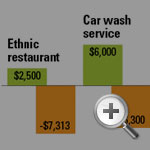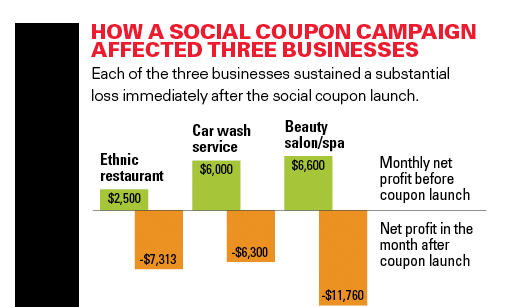The Perils of Social Coupon Campaigns
To achieve benefits from social coupons, businesses should design deals carefully — without giving too much away.
Topics
Social Business

Although most customers buy social coupons for a specific purpose, there may be some opportunities to broaden the relationship.
Social coupons have become a popular form of marketing promotion. On any given day, scores of businesses such as restaurants, car washes and dry cleaners pitch coupon discounts through Internet sites such as Groupon and LivingSocial in hopes of attracting a new crop of customers. But a poorly designed coupon campaign can do serious harm to a business’s profit margin. While the coupons can generate value for customers and the social coupon service providers themselves (who earn a percentage of the revenue), they can lead businesses into a thicket of problems.
We explored the impact of social coupon campaigns on three locally oriented businesses located in a southeastern city in the United States: an ethnic restaurant that normally earned $2,500 in net profit per month; a car wash service that normally earned $6,000 per month; and a beauty salon/spa that normally earned $6,600 per month. We tracked these businesses for one year following their coupon launches, providing us with information on several business variables, including the revenue trend and acquisition and retention rates. Based on this data, we developed business models to project how the coupon campaigns would affect both short-term and long-term performance. (The detailed results of our study were reported in the January 2012 issue of the Journal of the Academy of Marketing Science. See “Related Research.”) Our goal was to determine the extent to which coupon initiatives could lead to an increase in profits, the factors that work for and against the businesses acquiring and retaining customers, and the opportunities for program design changes (including revamping the coupon’s discount percentage and the rules regarding existing customers) that could be used to improve profitability. We also studied the potential for up-selling and cross-selling initiatives that could improve profitability.
What We Found
In their current form, social coupons are not ideally suited to ensure customer acquisition and yield business profits.



Comments (9)
Harry Jacob
Do Mobile Coupons Work Well For Car Wash Businesses?
Intrigued Reader
notxin
dimanise
mjbhatti
fatsgrill
tlfogarty
KathyMcCurry